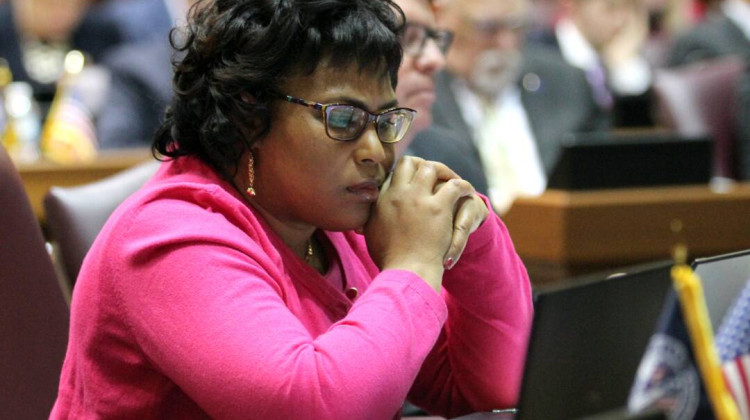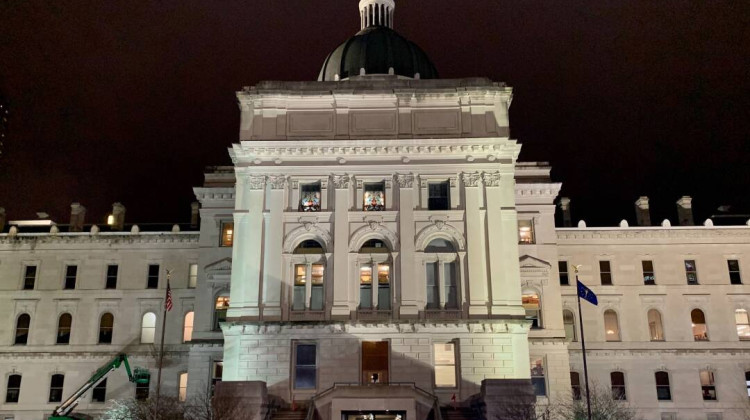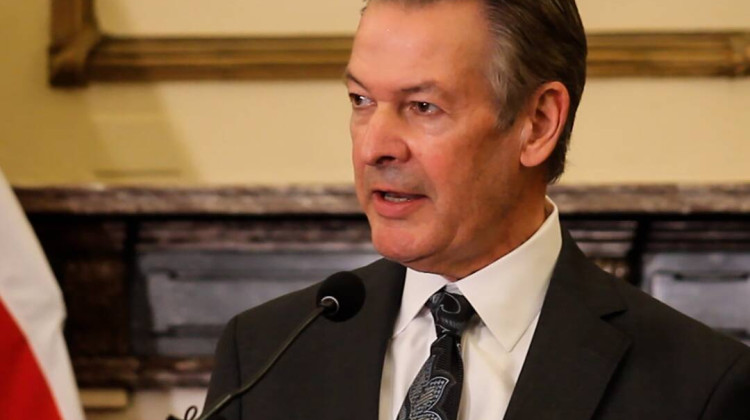
Indiana's voter turnout was 46th in the country in 2020, down from 41st in 2016. It ranked 50th in the country in 2022, down from 43rd in 2018.
Lauren Chapman/IPB NewsWhile Indiana’s voter registration and participation numbers have improved in the last couple of statewide election cycles, the state continues to fall further behind the rest of the country.
That’s from the latest edition of the Indiana Civic Health Index, an effort of the Indiana Bar Foundation and Indiana Civics Coalition.
The percentage of Hoosiers who were registered and voted improved between the last two presidential election years (2016 to 2020). Voter registrations went up between the last two midterms (2018 to 2022).
But compared to other states, Indiana got worse. Its voter turnout in 2020 was 46th in the country. In 2022, Indiana was dead last.
The state also struggles to get young people to participate in the process. Two different studies show the percentage of people age 18 to 24 — and especially 18- and 19-year-olds — largely declined in the last two statewide election cycles.
Why does Indiana struggle so much? The Civic Health Index indicates it’s down to two areas: competitive elections and policy choices. Many races in Indiana either feature no competition or have lopsided outcomes.
Join the conversation and sign up for the Indiana Two-Way. Text "Indiana" to 765-275-1120. Your comments and questions in response to our weekly text help us find the answers you need on statewide issues, including our project Civically, Indiana and our 2024 legislative bill tracker.
And Indiana Republican lawmakers have refused to consider any of the policy proposals suggested by the index, including same-day voter registration and unrestricted absentee voting.
Still, there are a few bright spots in the Civic Health Index. Lawmakers did make Indiana a leader in civics education in recent years, requiring a full semester of civics for sixth graders.
And there are other measures of civic awareness and engagement that are improving. The percentage of people who report contacting public officials, donating to political organizations and discussing politics is up.
Brandon is our Statehouse bureau chief. Contact him at bsmith@ipbs.org or follow him on Twitter at @brandonjsmith5.
 DONATE
DONATE








 Support WFYI. We can't do it without you.
Support WFYI. We can't do it without you.